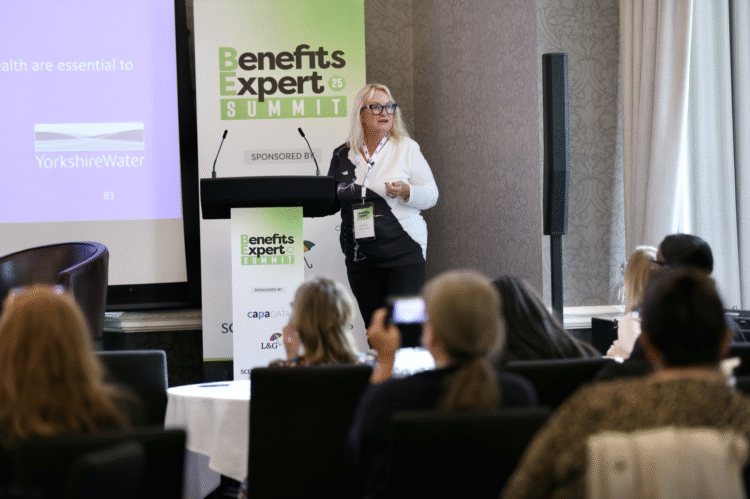Employers must take evidence-based, proactive responsibility for workforce mental health through early intervention, personalised support and psychologically safe workplaces.
Speaking at the Benefits Expert Summit, Yorkshire Water head of occupational health |& wellbeing Susan Gee explained that mental health is a growing and complex challenge and that employers must understand its full scope. She said that while mental health in the workplace isn’t new, it’s becoming more complex due to social and clinical factors like neurodiversity and trauma.
She noted the importance of distinguishing between everyday mental ill-health and serious mental illness.
“It’s important to make the differentiation between mental illness and mental ill health. Anxiety, depression and stress is a very different ball game to someone who has a serious mental illness.”
Gee said that employers must recognise wider social and economic factors shaping mental health. She emphasised that mental wellbeing doesn’t exist in isolation and that it’s influenced by deprivation, cost of living and NHS access.
She highlighted that 34% of children are living in absolute deprivation and self-harm rates among young people have doubled since 2007. She also added that 68 per cent of workers say that rising living costs and NHS delays negatively affect their mental health.
“If you want people to come to work, you’ve got to accept that they’re going to have things in their lives that are going to be a barrier to them attending such as waiting times on the NHS, health issues and caring responsibilities.”
According to Gee, early intervention and clinical expertise are essential. She called for employers to move beyond surface-level initiatives and provide real, timely support.
“We need early intervention and rapid access. I’m not suggesting employers become another NHS, but if you want people to be at work, then you’ve got to clear away some of the things that are going to be in the way.”
Gee argued that wellbeing must be evidence-based and aligned with business data and analytics should be use to to focus on the right issues.
She noted: “We need to have evidence-based practice. Wellbeing is not something you can buy. Wellbeing is a byproduct of good and safe work.
“You need to get into the weeds of the data. What’s your sickness absence telling you? Survey your people, look at your data and then try to make informed decisions.”
Employers should provide psychologically safe, sustainable workplaces according to Gee. She added that mental health strategy should focus on preventing harm and sustaining people’s “health capital”.
“When you employ someone, you are using their health capital, their physical and psychological health, and if that health is damaged during employment, once they’ve gone, they’re not your responsibility anymore.”
She reframed the employer’s role around enabling attendance rather than managing sickness.
“You’re not managing sickness; you’re managing attendance. You’re looking at ways to promote people to be able to come to work and accepting that at times we’ll all be a bit wasted.”
Finally, Gee stressed that modern workforces need tailored approaches that reflect generational, cultural and personal differences.
She said: “It needs to be personalised. You can’t have a one-size-fits-all because it’s different. Leadership that leverages biopsychosocial understanding and generational diversity alongside advanced personalised support.”












